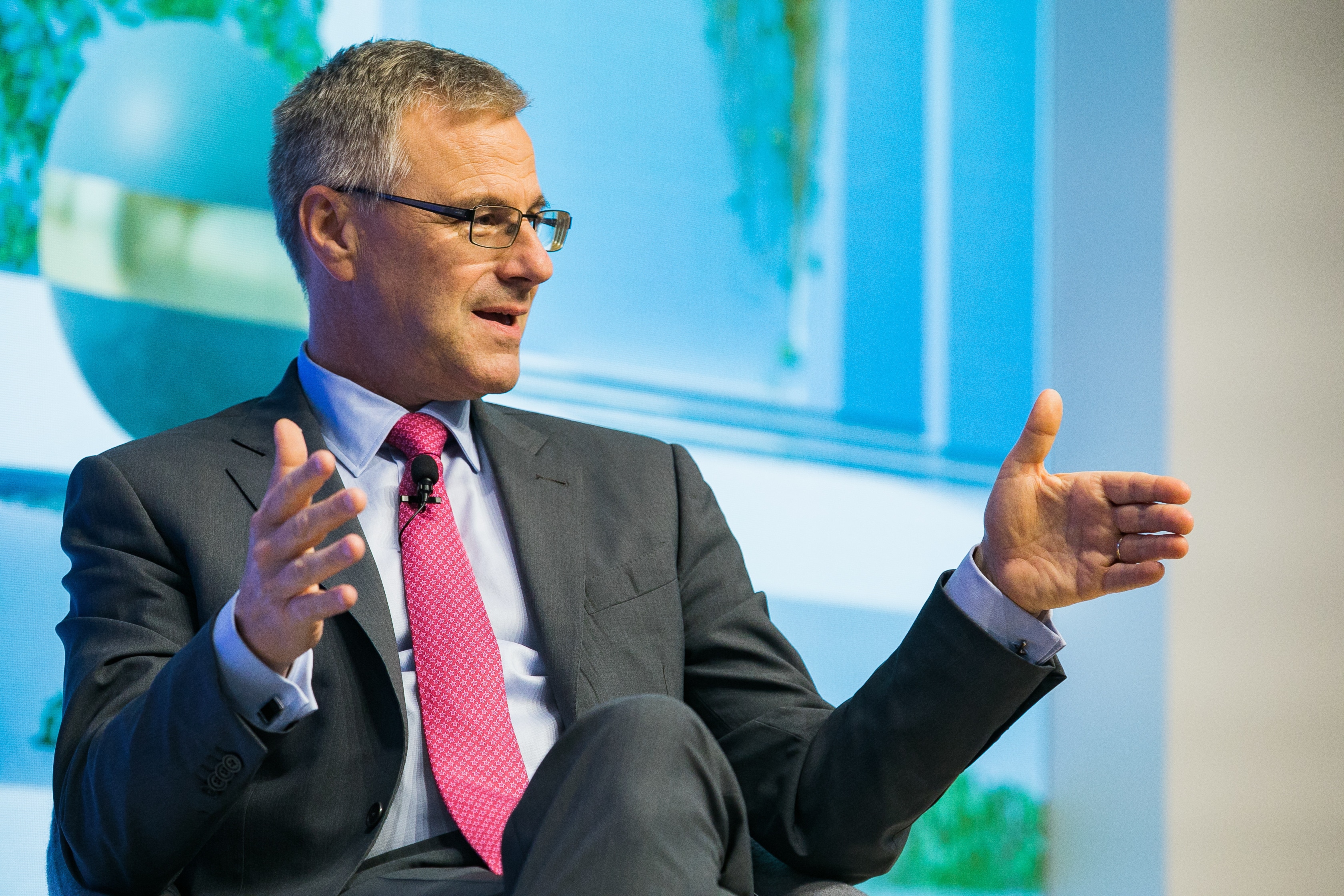Working with millennials, leaders say humility works better than bossing around

Learning from the Millennial generation and inspiring them matters more than telling them what to do, the CEO of Adecco and a UAE Minister said in a Conversation on Leadership 4.0.
Such “humble” leadership is worth it, because it provides mutual benefits: “My most glorious moment as a leader is when I can teach something to my kids,” Adecco’s Alain Dehaze, a father of four, said.
Millennials, the world’s first generation to have largely grown up with internet and mobile phones, has racked up a lot of negative press over the years. Called the “Me, me, me generation,” by TIME a few years back for their knack for taking selfies and branding themselves online, they are now increasingly seen as a disloyal group of employees, changing jobs up to five times before turning 30.
“That is one of the challenges of this world going forward,” Alain Dehaze, Chief Executive Officer of HR services company The Adecco Group told Ahmad bin Abdullah Humaid Belhoul Al Falasi, Minister of Higher Education and Advanced Skills of the United Arab Emirates. “The young generation does not want to belong to a company. They want to identify with a purpose. And if they’re no longer interested, they leave.”
Learning is a two-way street
That doesn’t mean it’s a burden to work with the young generation, Dehaze said. To the contrary: The young people Adecco hires through its “CEO for a Month” programme, for example, “reflect on how we lead, and what we can change,” he said, and “that is very refreshing.” It allows for a sort of inverse learning, where senior leaders can learn from those who are just dipping their toes in the world of work.

Experience can’t be gained overnight
But Dehaze does insist on conveying the crucial lessons he learned along the way. “You need time to learn, to get experience,” he said. “If you always move, you don’t build the capabilities to have an impact in the world.” The challenge for senior leaders like him is to keep the young people interested, so they can stay and learn, and become resilient. “That process is quite a challenge,” he said.
If convincing millennials in a corporate environment is difficult, it’s even harder in government, Al Falasi said. Before becoming Minister, he ran a renewable energy company. Then, reaching quarterly goals of growth or yearly goals on profitability kept everyone focused, including the younger employees. But working in government, it is harder to find such quantifiable targets.
Double down on the sense of purpose
“Working in government is not the most attractive option, Al Falasi said. The only viable option is to double down on the sense of purpose when working with millennials. “You have no choice but to inspire them,” he said. “You need to give them enough space to do what they want.” His solution: to allow for employees to set one of their 4-5 KPIs themselves and devote considerable time to it.
Stay humble
But Al Falasi also noted that it is important to stay humble – especially as a leader – and to keep learning. As a leader, “you get consumed by your own title very easily,” he said. But to continue to inspire a new generation, you constantly need to be in a self-learning mode. In a new era of leadership, “you never graduate,” he said. “Getting a degree is only a part of the road.”
Set an example worth following
Ultimately, leaders must set an example to follow for the next generation. Dehaze does so too by exemplifying a work-life balance. “I want to sleep seven hours per night,” he said. And I anchor everyone in my company to do that, too. Don’t expect me to read a presentation for the next morning if you send it at 11 at night.”
There is one thing though that keeps him up at night, though: how to attract and retain the right talent.
Read more about #amnc19 here.
Don't miss any update on this topic
Create a free account and access your personalized content collection with our latest publications and analyses.
License and Republishing
World Economic Forum articles may be republished in accordance with the Creative Commons Attribution-NonCommercial-NoDerivatives 4.0 International Public License, and in accordance with our Terms of Use.
The views expressed in this article are those of the author alone and not the World Economic Forum.
Stay up to date:
leadership
Forum Stories newsletter
Bringing you weekly curated insights and analysis on the global issues that matter.
More on LeadershipSee all
Sebastian Buckup and Maximilian Martin
November 13, 2025






